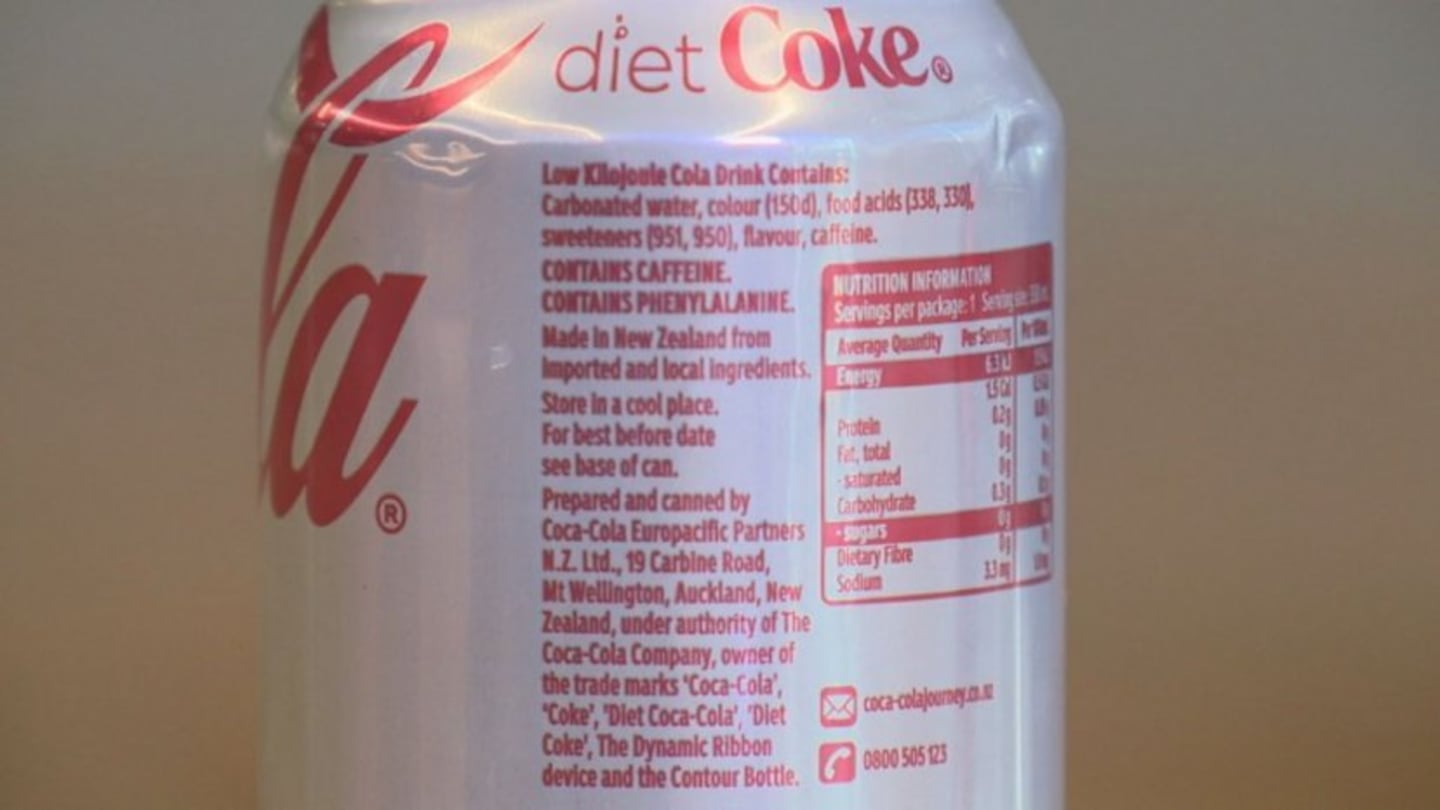It’s news to upset the party, especially if you like a diet soda.
The World Health Organisation's cancer research arm, the International Agency for Research on Cancer, is about to label Aspartame, an ingredient used in Diet Coke, among other artificially sweetened drinks and foods, a "possible carcinogen."
Foods that are "possibly carcinogenic" to humans are placed below "carcinogenic" and "probably carcinogenic" in IARC's classification of carcinogenicity (the ability or tendency to cause cancer).
As such, Māori Health researcher and Massey University Associate Professor Lisa Te Morenga doesn't think this report is a cause for alarm.
"I don't think we need to be worried about Aspartame based on this evidence. If you were drinking an excess of five litres of Diet Coke a day or using Aspertame to sweeten your food, then maybe yes. But the amount anyone would have in their normal diet is so tiny."
One reason for that is that Aspertame (often listed to as E591 or sweetener 951 as in the picture above) is about 200 times sweeter than table sugar, and hence a small quantity is enough to sweeten a large amount of food or drink. Lisa Te Morenga says sweet drinks using Aspertame are no worse than ones with sugar. But they are also no better.
Fizzy drinks the problem
"Recently WHO put out a research paper on artificial sweeteners and they said there is no evidence that artificial sweeteners are beneficial for your health," she says. "Neither (drinks with sugar or artifical sweeteners) are good for you, and it is better to choose water, coffee or tea."
The problems isn't so much artificial sweeteners as it is fizzy drinks and sodas overall, Te Morenga says. Sweet soft drinks have a bad impact effect on public health.
"We do know that in some of our lower socio-economic communities, there are a lot of stores selling and marketing these foods," Te Morenga says. "And we do have higher rates of obesity and obesity-related diseases in our communities and we know that sweetened drinks are a contributor to that."
Te Morenga also believes there should be some regulation in the market. "Nutrition experts and Health Coalition Aotearoa have been calling for greater regulation on the sale and marketing of sweetened drinks for a long, long time," she says. "This is because of their role in oral health, and they also seem to have a role in promoting excess weight gain that leads to diseases like diabetes and cancer."
Te Ao Māori News' request to Coca Cola New Zealand for comment was passed on to the International Council of Beverages Associations Asia Pacific Group, which represents the non-alcoholic drinks industry across the Asia Pacific region.
ICBA's response said Kiwis could be assured the foods and drinks they're consuming with sweeteners were perfectly safe. Aspartame was one of the most thoroughly tested food additives in the world and over 100 scientific papers by over 200 experts over a 40-year period had repeatedly determined it to be safe.
Full statement from the International Council of Beverages Association to Te Ao Māori News
New Zealand Food Safety Acting Deputy Director-General Jenny Bishop said the organisation was aware that the International Agency for Research on Cancer (IARC), and JEFCA were preparing to release reports in July about the artificial sweetener aspartame, and that it assess these reports closely. Customers could be assured that aspartame and other artificial sweeteners available for consumption in New Zealand had been through a thorough process of evaluation for safety, says Bishop.
Te Ao Māori News also asked New Zealand's largest supermarket chains for comment. While there was no response from Foodstuffs media team, Countdown New Zealand has said it will review the use and labelling of aspartame after the WHO report which is due on July 14.
New Zealand food safety's resposnse to Te Ao Māori News
The International Sweeteners Association (ISA) is also expected to make a statement in response to the IARC’s assessment of Aspartame.


